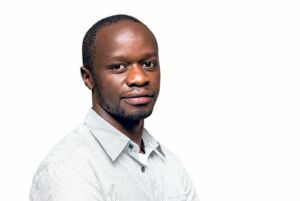Opinion
Straight Up: Danish universities should welcome refugees
Zach Khadudu
This article is more than 9 years old.
The Magna Charta Universitatum was a document signed in 1988 by close to 400 university rectors from across Europe. It celebrated the 900-year anniversary of one of the oldest universities in Europe: the University of Bologna.
A fundamental pillar
The document reiterated a very fundamental pillar of a university: academic freedom. The principle of academic freedom is as old as the history of universities.
Academic freedom is the idea that the pursuit of truth through the acquisition of knowledge should be independent of undue influence from governments or any other interest groups. The concept of academic freedom is closely related to the concept of Studium generale, which basically meant students from everywhere were welcome to study and pursue knowledge regardless of where they came from.
In our times universities have ditched their original values and become elitist, commercialised and political tools. It’s increasingly less about academic freedom and the pursuit of knowledge, and more about value for money and political manipulation. University doors especially in Europe have become ever narrower – especially to those bearing tags like ‘illegal immigrant’, ‘refugee’, ‘asylum-seeker’, and ‘fundamental Muslim’. And it’s a list that continues to get longer.
The tentacles of government
To be fair to universities, this is mainly due to governments increasingly extending their tentacles into university operations. In Denmark, for instance, the government decides which groups of people can and cannot be admitted to universities. At the moment, asylum-seekers are largely barred from attending institutions of higher learning. The government is also significantly cutting down on university funding, thus seriously affecting research and operations at the institutions.
While several universities are willing to open their doors to refugees, politicians are standing at the doors with a ‘No Admission for Refugees’ sign. However, despite the myopic syndrome of the political class, some Danish universities are showing some thick skin.
Welcome voice of reason
One very sober voice was that of the rector of the University of Copenhagen (KU), Ralf Hemmingsen. Hemmingsen called on the government to make the necessary adjustments to allow KU to offer university education to refugees arriving in Denmark – most of whom, by the way, are highly intellectual.
In an open letter to the education minister, Asben Lunde Larsen, he argued (and rightly so) that offering university education to refugees would help them better integrate and access the Danish labour market.
Of course, whether Larsen listens remains to be seen. He is after all best known for saying “If I have to speak of a black person, then I will call them neger” – proof that having a foul mouth and belittling other people because of their skin colour (aka racism) can earn you a ministerial position in Denmark.
A neighbourly example
Other Danish universities, such as Roskilde University, are initialising initiatives to try and make it possible for refugees to acquire higher education. And in neighbouring Germany, several universities have accepted refugees – mainly Syrians.
The University of Munich, for instance, has set up a specialised program to assist refugees who wish to study at the institution. In a world where political madness, a carefree media and a joyriding civil society run riot, universities must be the voice of conscience.

About
Zach Khadudu
Zach Khadudu is a Kenyan by birth and a journalist by choice. He is a commentator and an activist with a passion for refugee and human rights. He may share a heritage with a certain US president, but his heart lies elsewhere – in the written and spoken word.










































